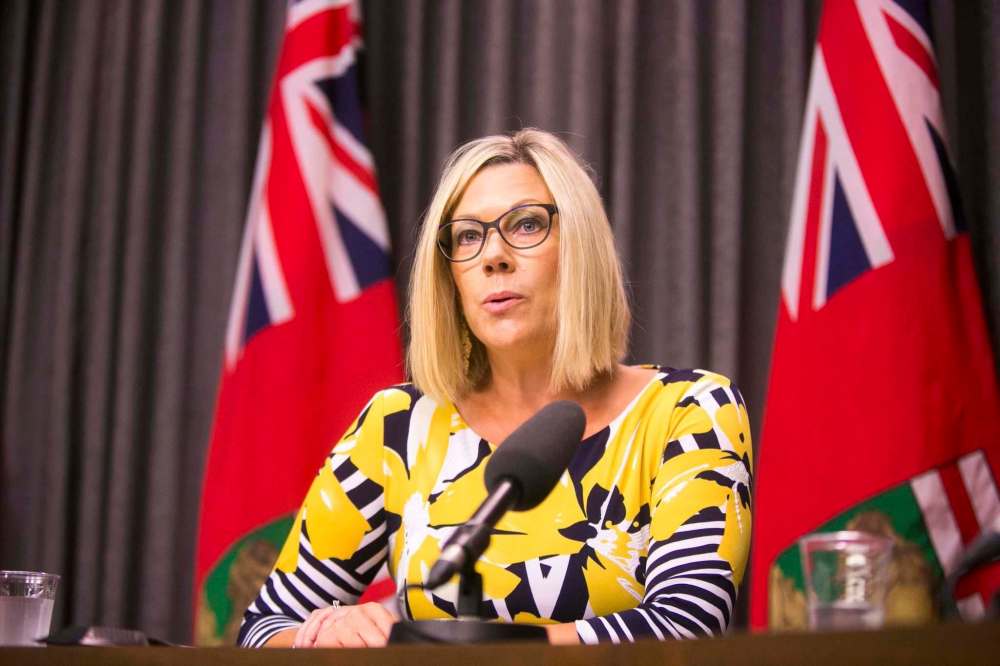For politicians, teachable moments abound
Advertisement
Read this article for free:
or
Already have an account? Log in here »
To continue reading, please subscribe:
Monthly Digital Subscription
$19 $0 for the first 4 weeks*
- Enjoy unlimited reading on winnipegfreepress.com
- Read the E-Edition, our digital replica newspaper
- Access News Break, our award-winning app
- Play interactive puzzles
*No charge for four weeks then billed as $19 plus GST every four weeks. Offer only available to new and qualified returning subscribers. Cancel any time.
Read unlimited articles for free today:
or
Already have an account? Log in here »
Hey there, time traveller!
This article was published 16/09/2018 (2297 days ago), so information in it may no longer be current.
Parents and educators refer to them as “teachable moments.”
In simple terms, they are the times when a mistake or a bit of preventable misfortune creates an opportunity to turn a negative experience into a positive lesson learned. Teachable moments play a big part in making all our future moments more easily navigable.
Recent events have raised questions regarding Manitoba politicians and their ability to embrace such moments. Specifically, one is left wondering, after a series of negative headlines, what it will take for elected officials to realize it’s unacceptable to conceal, for political purposes, information pertaining to issues of public safety.

Media reports have revealed several instances in which provincial governments past and present have withheld information which, had it come to light in a more timely manner, could have prompted action to prevent further or ongoing danger or abuse.
Documents obtained by the Free Press through freedom of information requests showed the provincial government withheld, for at least six weeks, information about soil contamination in south St. Boniface. Sustainable Development Minister Rochelle Squires had earlier stated that she was unable to release the information because of a media blackout associated with a byelection in St. Boniface, but the emails acquired by the Free Press showed the minister’s office failed to disclose the associated laboratory test results for more than two weeks before the byelection was called.
The revelation was followed by calls for Ms. Squires’ resignation; in the end, the failure to release the information was attributed to a communication failure by the minister’s staff.
Perhaps as a result of the outcry sparked by the contamination-report delay, Ms. Squires, at a hastily arranged media conference on Aug. 21, addressed a Clean Environment Commission report that includes decades-old allegations of discrimination and sexual abuse by Manitoba Hydro staff in northern communities during construction of hydroelectric projects.
The province is said to have received the report more than three months before its damning information was released publicly. Ms. Squires denied its release on Aug. 21 was in any way an effort to deflect attention from the controversy surrounding the St. Boniface soil contamination report.
Earlier this week, access was restricted to playgrounds and sports fields in several Winnipeg neighbourhoods after it was revealed that soil samples gathered more than a decade ago showed elevated lead levels in Point Douglas, Minto, Weston and Wolseley. Initial tests had been conducted in the 1980s; re-testing was carried out in 2007 and 2008 at the request of the province’s then-NDP government.
A report was issued in 2011 but never released. A draft press release on the issue, complete with quotes attributed to then-conservation minister Stan Struthers, was prepared but never distributed.
The two things these three events have in common are that they’re appalling, and efforts to delay or prevent release of the information about them ultimately failed. Elected officials who believe keeping negative information under wraps is a politically productive strategy should be reminded their first duty is to the public that put them in their jobs. Public safety is paramount. In almost every case, the consequences of concealment will outweigh its perceived (and inevitably short-term) benefits.
Revelations such as these usually create opportunities for opposing parties to make political hay at the expense of the offender. In Manitoba these days, blame is being apportioned in a way that should rightly subdue the urge to point fingers.
Eminently teachable moments abound. What Manitobans should hope is that they’ll be embraced by a subsequently enlightened assemblage of “learnable politicians.”


